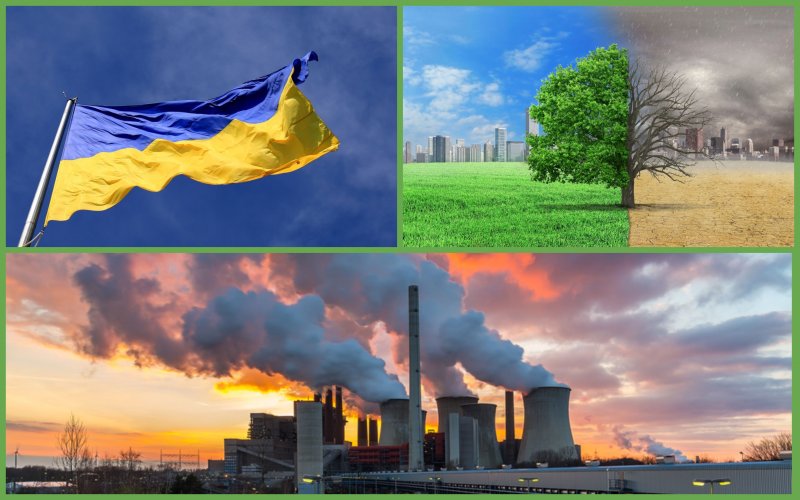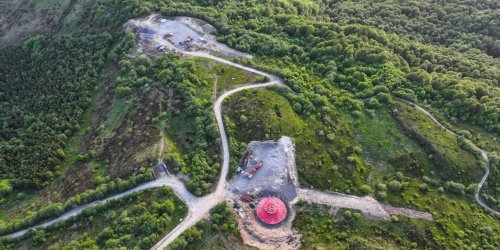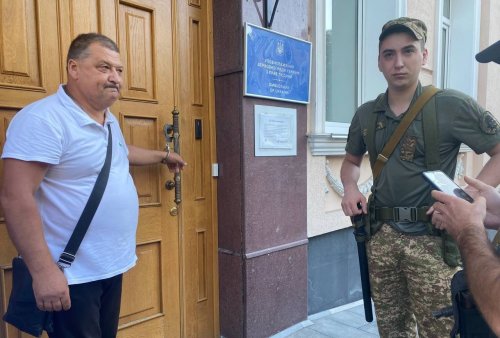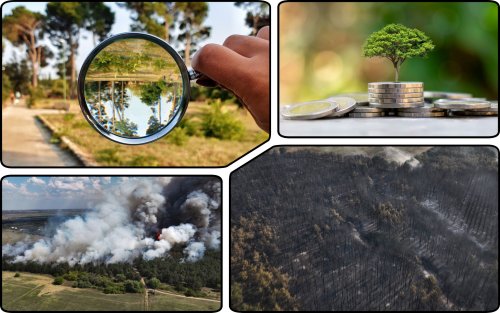In recent years, environmental policy at the state level has been implemented in Ukraine according to the principle: "we are for everything good and against everything bad." This is also the case with the Environmental Impact Assessment (EIA) procedure, which all enterprises planning to carry out activities that will have environmental risks are required to undergo. So, at first glance, the absolutely correct and necessary EIA procedure has de facto turned into another lever of pressure on business.
But let's start to understand how the EIA works in Ukraine from the very beginning. More details — in the Ecopolitic material.
The Law on EIA is part of the European legislation, which Ukraine undertook to implement when signing the Association Agreement with the EU. On December 18, 2017, the Law of Ukraine "On Environmental Impact Assessment (EIA)" (dated 05.23.17 No. 2059-VIII) entered into force, which introduced the European model of environmental assessment in Ukraine to fulfill Ukraine's international obligations.
According to Directive 2011/92/EU, the environmental impact assessment must determine, describe and evaluate the direct and indirect significant impact of the project on the safety of people's lives and their health, the surrounding natural environment and its elements, natural territories and objects , historical monuments and other material objects, cultural heritage.
The EIA procedure is mandatory for most types of planned activities before the start of work. After all, even at the stage of geological study, every company must understand all possible impacts on the environment and predict the most optimal conditions for the use of subsoil with a permissible impact on the environment.
The environmental impact assessment procedure involves three main stages:
- notification of planned activities;
- publication of the report announcing the start of public discussion;
- obtaining a conclusion.
In Ukraine, the Law on EIA introduced a new model of business planning, which takes into account environmental factors.
On the one hand, EIA is a procedure of civil society, as it involves the involvement of the public in public hearings on the planned activities of the enterprise. An important point is that the public's opinion must be taken into account when preparing a report on the EIA.
On the other hand, EIA allows a business to determine not only the environmental feasibility of the planned activity, but also allows to determine the optimal alternative version of it in compliance with the requirements of current environmental protection legislation.
Realities of EIA in Ukraine
However, in practice already in the first years of application of the Law "On EIA" it became obvious that the procedure is corrupt. Public organizations have repeatedly publicly reported scandals during the procedure. At the same time, experts agree that during the time of the Minister of Environment Protection and Natural Resources Roman Abramovskyi, despite the controversial issues, the procedure worked.
On November 3, 2021, the Verkhovna Rada dismissed him. He was in office for more than a year. During this time, the Ministry of Environment initiated many positive changes, which were supported by environmental activists. In particular, we are talking about the rejection of the conclusions of the Ministry of Internal Affairs or significant environmental restrictions on frankly harmful projects of mineral extraction, construction of hydroelectric power plants, and forest cutting.
At the same time, with the arrival of Ruslan Strilets' team at the Ministry of Natural Resources in May 2022, the situation worsened. The market began to signal more about groundless refusals to receive EIA and corruption pressure.
In particular, the Ukrainian Nature Conservation Group (UNCG) criticized the policy of the new minister. It was about the resolution canceling the ban on logging during the war.
"Currently, the resolution has not yet been adopted, but it is only a matter of time. The newly appointed leadership of the Ministry of Environmental Protection (in particular, Minister Ruslan Strilets and his first deputy, Oleksandr Krasnolutskyi) do not see any problems in the new resolution. This is not the first time since the beginning of the war, when environmental legislation is being weakened in order to allegedly strengthen the "defense capability of the state". Do you remember how they recently canceled the season of silence, closed the possibility of participation in the EIA, closed access to various public data about forests? Who benefits from such changes? Certainly not the state and not Ukrainians. Unfortunately , this is just the beginning," UNCG commented.
However, in practice already in the first years of application of the Law "On EIA" it became obvious that the procedure is corrupt. Public organizations have repeatedly publicly reported scandals during the procedure. At the same time, business representatives, according to surveys, believe that it was easiest to get a conclusion from the EIA during the term of office of the Minister of Environmental Protection and Natural Resources, Roman Abramovskyi.
On November 3, 2021, the Verkhovna Rada dismissed him. He was in office for more than a year. During this time, the Ministry of Environment initiated many positive changes, which were supported by environmental activists. In particular, we are talking about the rejection of the conclusions of the EIA or significant environmental restrictions on frankly harmful projects of mineral extraction, construction of hydroelectric power stations, and forest cutting.
Nuances of EIA in wartime
In connection with the Russian attack on our country and the introduction of martial law, the Government introduced changes in the functioning of information and communication systems and electronic registers. In particular, this also applies to the Unified Register of EIA.
According to current legislation, the EIA procedure must last at least 120 days. De facto, the procedure lasts at least six months. It often happens that the process needs a whole year of research before it can be uploaded to the Unified Register of Environmental Impact Assessment.
In the conditions of war, such expectations are unacceptable and need to be changed. This course of action, first of all, does not contribute to the economic development of the state. However, there are other nuances that may be the reason for canceling all EIAs issued during martial law. Companies are unable to implement some provisions of the law on EIA due to military operations, and any deviations from the current rules may become grounds for invalidating a EIA conclusion obtained during martial law.
An important nuance of the entire EIA procedure is publicity, however, in wartime, for security reasons, public access to the Unified Register of EIA was closed. According to the law, all stages of the procedure must be informed to the public both through the register and through print media. Without access to the register, the element of publicity was not observed, which is the basis for canceling the conclusion of the EIA. Thus, EIA conclusions issued during the war can be canceled for formal reasons.
On August 26, the Ministry of the Environment published the long-awaited draft law on changes to the procedure of EIA. However, to tell the truth, it does not contain radical changes. On the positive side: a reduction in the terms of passing the EIA at the stages of collecting comments and suggestions as part of the public discussion and issuing a conclusion on the EIA. This will reduce the duration of the EIA procedure by at least 18 working days. It is also proposed to cancel the condition of placing a notice on the planned activity and the announcement of the start of public discussion of the report on the EIA in the print media.
Even with minor positive changes, in general, businesses and public organizations still have many objections to the EIA procedure. If we also take into account the possible corruption factor, then a good European tool for caring for the environment has actually turned into another lever of pressure on business. Questions arise — why even during the war in the state, signs of a return to corrupt practices appear again? Will corruption pressure on business increase? And most importantly, what is the leadership of the Ministry of Environment going to do with this situation? EcoPolitics will monitor the situation and inform our readers.





